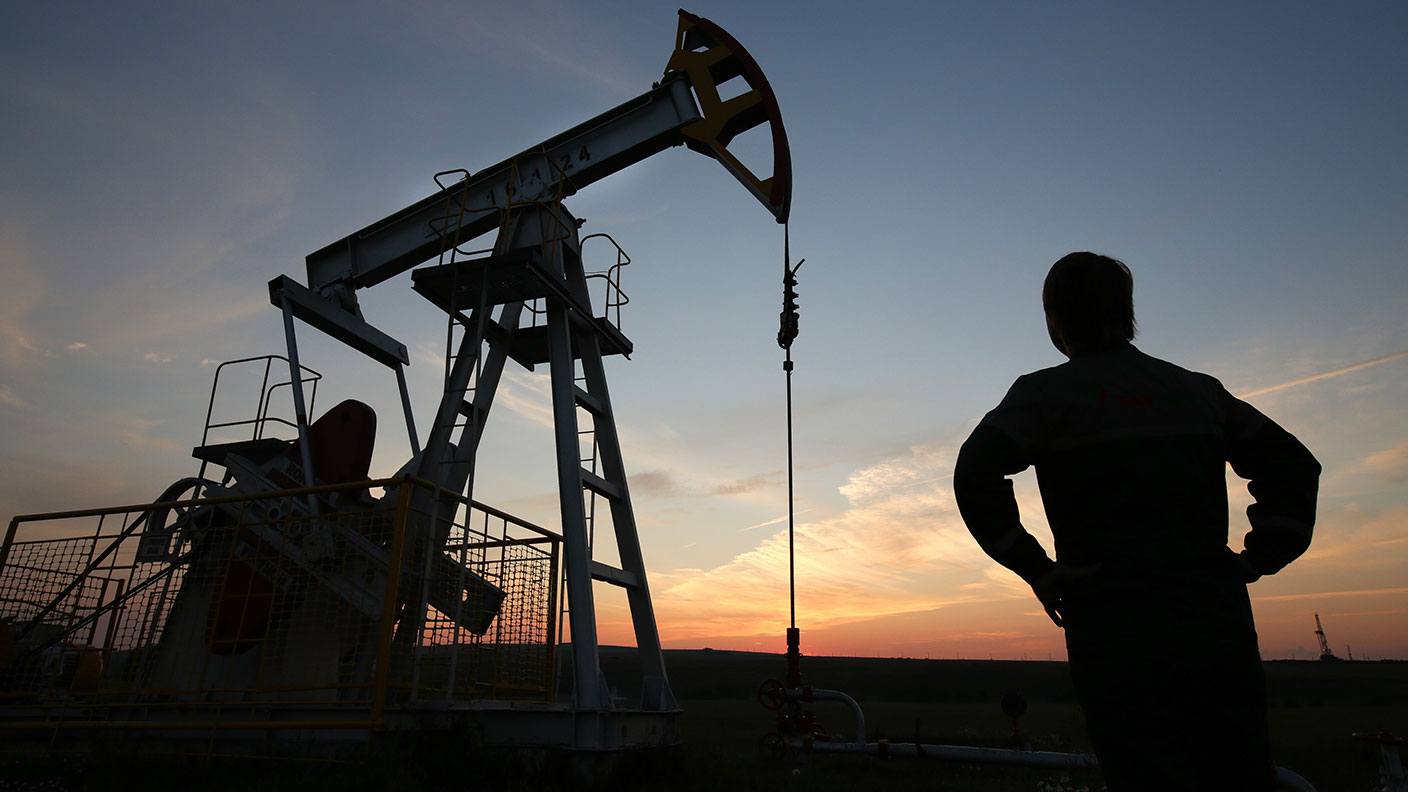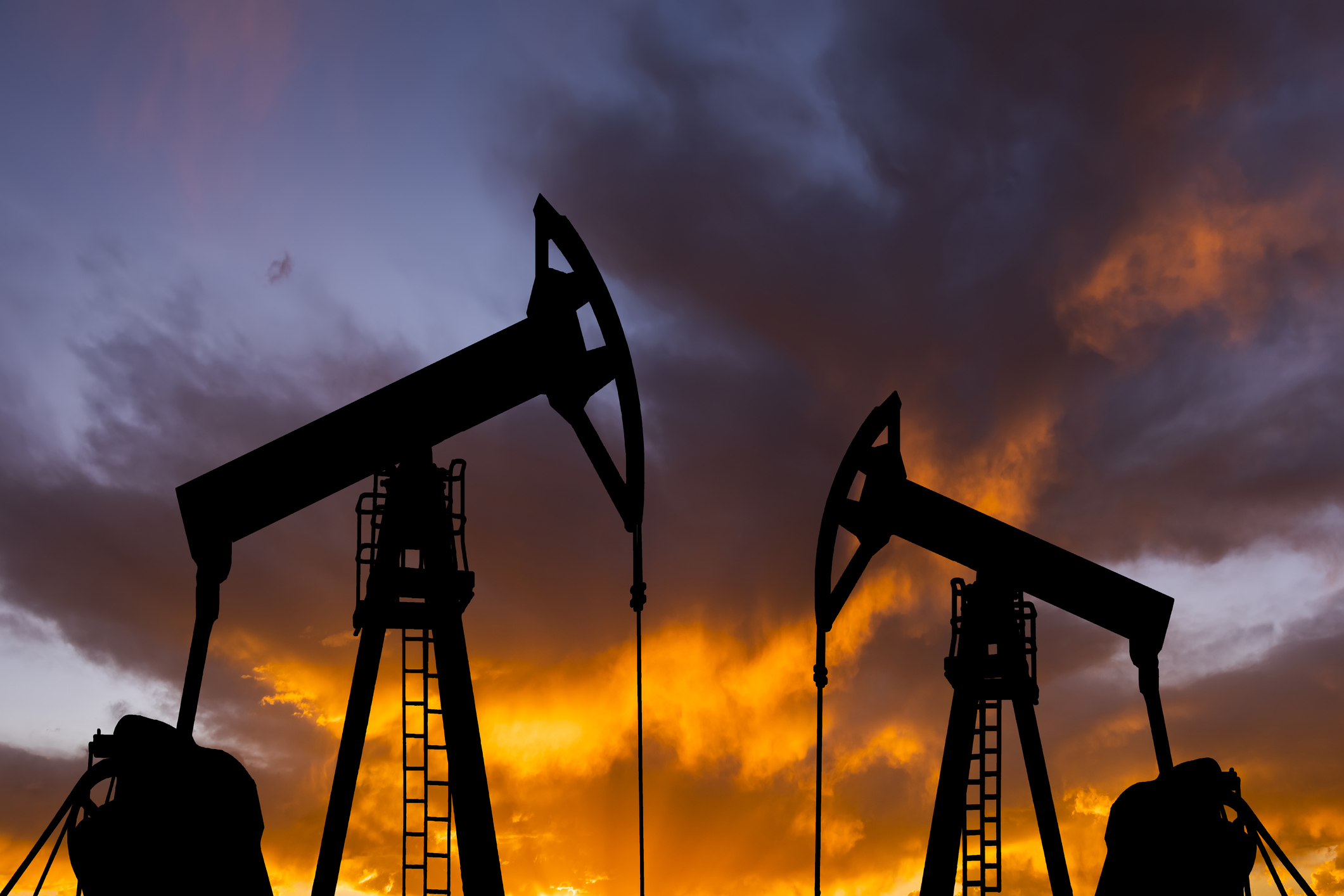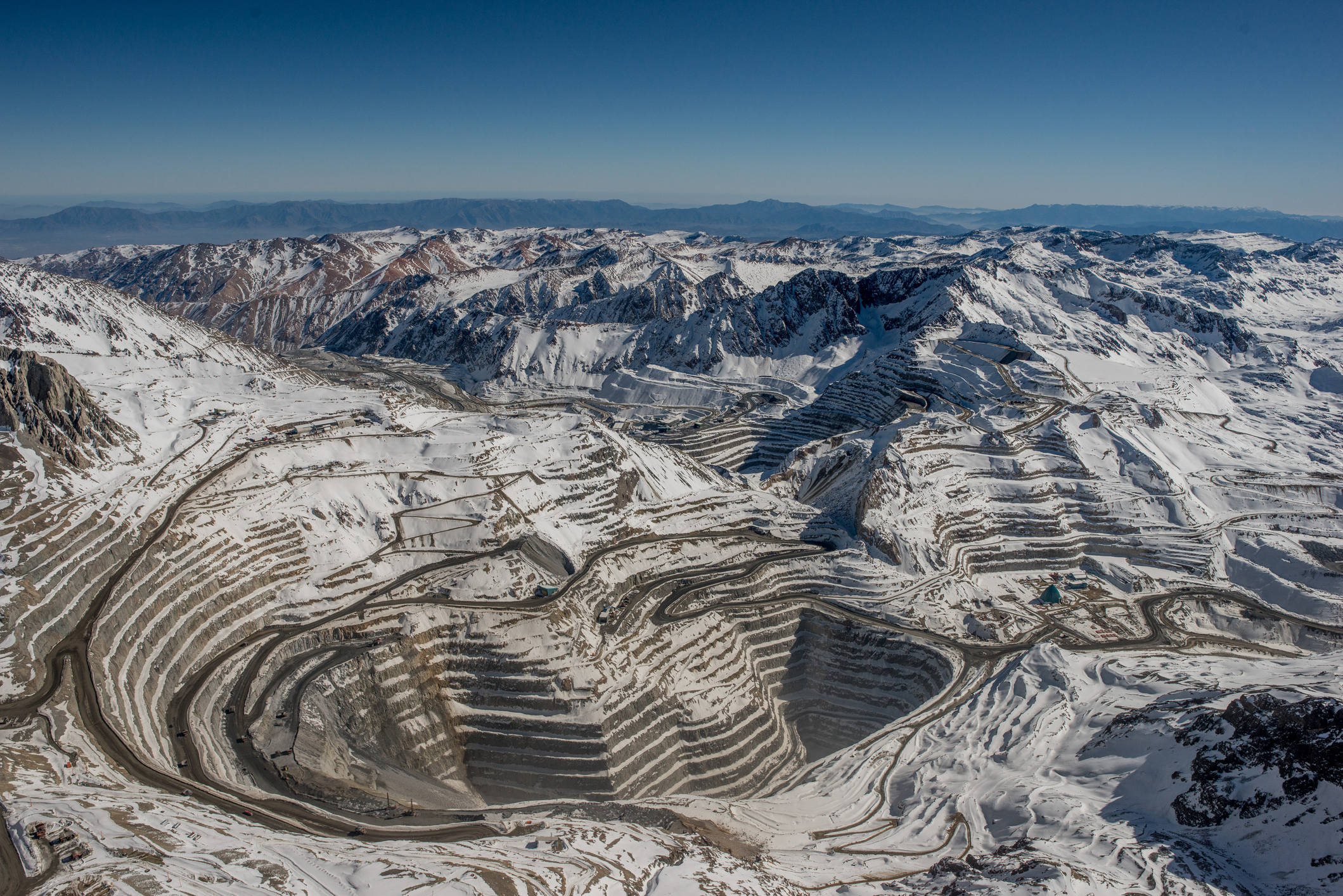What do higher oil prices mean for investors?
The oil price has hit its highest in three years as post-pandemic demand rebounds. Saloni Sardana looks at what's going on and how it could affect you.


Get the latest financial news, insights and expert analysis from our award-winning MoneyWeek team, to help you understand what really matters when it comes to your finances.
You are now subscribed
Your newsletter sign-up was successful
Want to add more newsletters?

Twice daily
MoneyWeek
Get the latest financial news, insights and expert analysis from our award-winning MoneyWeek team, to help you understand what really matters when it comes to your finances.

Four times a week
Look After My Bills
Sign up to our free money-saving newsletter, filled with the latest news and expert advice to help you find the best tips and deals for managing your bills. Start saving today!
Yesterday, oil prices (as measured by Brent crude) raced past $80 barrel for the first time in three years. It’s the latest commodity of many to surge in value. West Texas Intermediate – WTI, the US benchmark – also hit a two-month high, at just above $76 a barrel.
So what’s going on and what do oil’s gains mean for you?
Why are oil prices rising?
As Reed Blakemore, deputy director of the Atlantic Council’s Global Energy Centre, tells Al Jazeera, the current “drama” in the market is due to a “collision of three massive forces: the impact of prolonged demand uncertainty due to Covid-19 on supply-side management over the past year; the structural changes of a policy-driven transition to a net-zero world; and the reality that sufficient investment and development of oil and gas supplies is still crucial to market stability even amidst a global energy transition”.
MoneyWeek
Subscribe to MoneyWeek today and get your first six magazine issues absolutely FREE

Sign up to Money Morning
Don't miss the latest investment and personal finances news, market analysis, plus money-saving tips with our free twice-daily newsletter
Don't miss the latest investment and personal finances news, market analysis, plus money-saving tips with our free twice-daily newsletter
In other words, producers have struggled to match supply and demand in the short term due to lockdowns; while in the longer run, politicians are trying to swap us all to non-fossil fuels without really considering that we might need the old, mucky ones for a bit longer.
Most obviously, oil demand has rebounded sharply after its total collapse last year. In April 2020, Brent fell as low around $20 a barrel (hardly surprising when the whole world was locked up), while WTI (on some contracts) even turned negative briefly.
But positive news on vaccines and recovering higher economic activity following the easing of restrictions has seen the oil market to roar back to life. Brent is now up around 70% since the start of the year alone, while WTI is up more than 50%.
Another short-term factor is that the oil market is still reeling from the impact of Hurricane Ida which badly affected US supply last month. The fact that natural gas has gone through the roof is also having something of a knock-on effect to oil.
On top of all that, China specifically is enduring an energy shortage which is helping to underpin oil prices as it looks to cut down on pollution from coal in particular ahead of February, when it is due to host the Winter Olympics. As a result, many factories are switching to using diesel as an energy substitute.
Will oil prices remain this high?
In terms of supply, oil cartel Opec (plus Russia – known as Opec+) has just increased production. But oil prices have so far shrugged this off simply because it only matched increased demand – and as Goldman Sachs analysts point out, the impact of Hurricane Ida, which shuttered production capacity, offset the rise in oil production.
That’s likely to continue, even if supply is boosted further, reckons Barclays. "Opec+ tapering would not plug the oil supply gap through at least Q1 2022 as demand recovery is likely to continue to outpace this, due partly to limited capacity of some producers in the group to ramp up output".
Goldman Sachs now expects oil prices to level out around $90 a barrel by the end of the year, up from a previous estimate of $80. "While we have long held a bullish oil view, the current global supply-demand deficit is larger than we expected, with the recovery in global demand from the Delta impact even faster than our above-consensus forecast and with global supply remaining short of our below consensus forecasts'.
Of course, investment banks are constantly making forecasts about the oil price, and these are often wrong – notably, eye-catching calls that predict a price well in advance of current prices have tended to signal tops in the past. But a forecast for $90 isn’t so exuberant as to fit into that category. And even if prices don’t rise much further, there is no obvious reason to expect oil to crash either.
What does it mean for markets and the economy?
Higher oil spells higher petrol prices for consumers. And oil is of course a huge cost for companies too. So this could both spur inflation (which is already at a nine-year high) and hit disposable incomes (unless wages rise faster than prices – in which case corporate margins may well take a hit). In other words, this adds to the stagflation risks.
As far as investing goes, the winners are pretty obvious. Oil and gas companies should do well if prices stay high. One way to play this is via the iShares Oil & Gas Exploration & Production UCITS ETF (LSE: SPOG). which has risen sharply from its pandemic low, but is still trading below its pre-pandemic levels.
Get the latest financial news, insights and expert analysis from our award-winning MoneyWeek team, to help you understand what really matters when it comes to your finances.
Saloni is a web writer for MoneyWeek focusing on personal finance and global financial markets. Her work has appeared in FTAdviser (part of the Financial Times), Business Insider and City A.M, among other publications. She holds a masters in international journalism from City, University of London.
Follow her on Twitter at @sardana_saloni
-
 Should you buy an active ETF?
Should you buy an active ETF?ETFs are often mischaracterised as passive products, but they can be a convenient way to add active management to your portfolio
-
 Power up your pension before 5 April – easy ways to save before the tax year end
Power up your pension before 5 April – easy ways to save before the tax year endWith the end of the tax year looming, pension savers currently have a window to review and maximise what’s going into their retirement funds – we look at how
-
 EPC rating standards for private landlords set for major overhaul amid ‘biggest ever’ energy efficiency push
EPC rating standards for private landlords set for major overhaul amid ‘biggest ever’ energy efficiency pushNews The government wants landlords to achieve an EPC rating of at least C in private rented homes. The policy revives plans previously put forward by the Conservatives.
-
 Is the market missing the opportunity in energy?
Is the market missing the opportunity in energy? -
 Halifax: House price slump continues as prices slide for the sixth consecutive month
Halifax: House price slump continues as prices slide for the sixth consecutive monthUK house prices fell again in September as buyers returned, but the slowdown was not as fast as anticipated, latest Halifax data shows. Where are house prices falling the most?
-
 Rents hit a record high - but is the opportunity for buy-to-let investors still strong?
Rents hit a record high - but is the opportunity for buy-to-let investors still strong?UK rent prices have hit a record high with the average hitting over £1,200 a month says Rightmove. Are there still opportunities in buy-to-let?
-
 Pension savers turn to gold investments
Pension savers turn to gold investmentsInvestors are racing to buy gold to protect their pensions from a stock market correction and high inflation, experts say
-
 6 stocks to buy to invest in Latin America
6 stocks to buy to invest in Latin AmericaThe region is the world’s one-stop shop, boasting the raw materials required for the energy transition and key foodstuffs to cater for growing populations, says James McKeigue. Here’s how to profit.
-
 Where to find the best returns from student accommodation
Where to find the best returns from student accommodationStudent accommodation can be a lucrative investment if you know where to look.
-
 The world’s best bargain stocks
The world’s best bargain stocksSearching for bargain stocks with Alec Cutler of the Orbis Global Balanced Fund, who tells Andrew Van Sickle which sectors are being overlooked.
